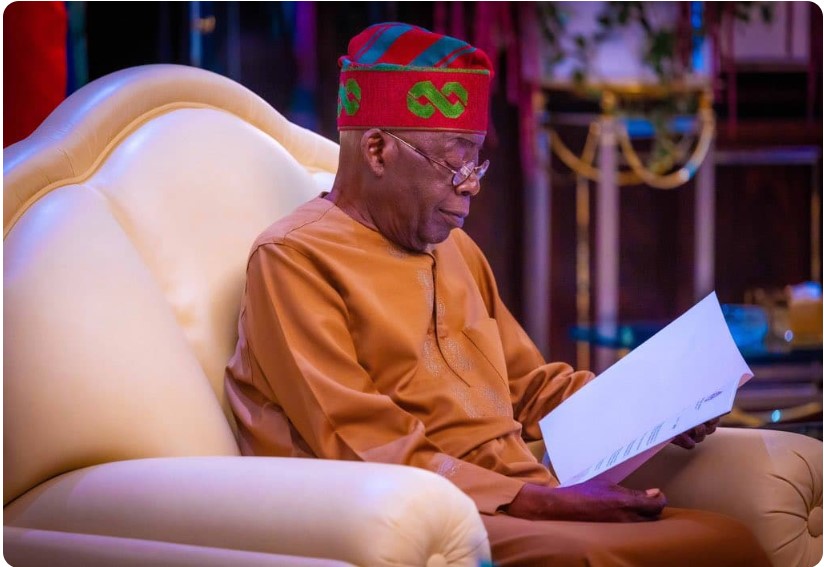In a move that could potentially redefine Nigeria’s political landscape, a draft bill proposing a return to a regional system of government will be submitted to President Bola Ahmed Tinubu on Friday.
The proposed legislation, authored by Akin Fapohunda, a chieftain of the Yoruba socio-cultural association Afenifere, and the Coalition of Indigenous Ethnic Nationalities (CIEN), seeks to replace the current federal system with a two-tier government structure comprising federal and regional governments.
Fapohunda told The PUNCH on Thursday that the bill would be transmitted to the President on Friday.
“I’m submitting my letter (draft bill) today but I will wait for seven days before releasing it to the public,” he said.
According to Fapohunda, the bill, titled “A Bill for an Act to substitute the annexure to Decree 24 of 1999 with New Governance Model for the Federal Republic of Nigeria,” aims to address the country’s political and economic challenges by decentralizing power and promoting regional autonomy.
The proposed regions would have significant powers to manage their affairs, create sub-entities, and adopt their own constitutions.
The proposed regions, according to Fapohunda, include the southern region to be made up of Akwa-Ibom, Bayelsa, and Cross Rivers States and “Optional inclusions of the Annang, Effik, Ekoi, Ibibio, Oro Ohaji/Egbema in Southern Imo, the Adonia, Efemia, Ijaw, Ogoni, Bini, Ishan, Isoko, Urhobo and the Ijaw-speaking people in Northern Ondo State with land contiguity.”
He continued, “The South Eastern region consists of Abia, Anambra, Ebonyi, Enugu, and Imo States.
The Western region comprises Lagos, Ogun, Ondo, Osun, Oyo, and Ekiti States, incorporating the Yoruba-speaking people in Kogi and the Igbomina people in Kwara State.
Additional options would be the Itsekiri people of Delta State and Akoko-Edo people of Edo State to make their respective choices.”
Others include the Mid-Western Region “Made up of Edo and Delta States, possibly incorporating the Anioma people and the Eastern Middle Belt Region comprising Northern Cross River, Southern Kaduna, Southern Borno, Adamawa, Benue, Kogi, Plateau, Nasarawa and Taraba States.”
The Western Middle Belt Region comprises Southern Kebbi, parts of Kwara and Niger States while the North Eastern Region will be made up of parts of Borno, Gombe, Bauchi, Jigawa, and Yobe States.
The North Western Region, according to the Afenifere chieftain, comprises Kaduna, parts of Kebbi, Kano, Katsina, Sokoto, and Zamfara States.
Fapohunda explained that the proposed regions would be at liberty to create provinces, subject to viability and self-sustainability, and transform local government areas into divisions with divisional managers and specialist administrative officers.
The regions would also have the power to merge or re-configure their sub-political units without interference from any other authority.
The coalition also proposed a new constitution that would embody novelties such as freedom for regions to create, merge, or re-configure their sub-political units, reduce the cost of public and civil service administration to less than 20-30% of generated revenue, and adopt a parliamentary system with a rotating headship among the regions.
Fapohunda stated that the proposed governance model is designed to address the country’s challenges, including the concentration of power at the federal level, which has led to inefficiency, corruption, and underdevelopment.
He believes that the regional system would promote healthy competition among regions, foster economic development, and reduce the burden on the federal government.
“The present federal system has failed Nigeria, and it’s time to try a new approach,” Fapohunda said. “Our proposed regional government system would decentralize power, promote regional autonomy, and reduce the cost of governance. We believe this is the way forward for Nigeria.”
The submission of the draft bill comes despite the House of Representatives’ earlier disownment of the proposal.
Fapohunda, however, remains optimistic that the bill would receive favorable consideration from the President and the National Assembly.
“I’m submitting my letter (draft bill) today, but I will wait for seven days before releasing it to the public,” Fapohunda told The PUNCH. “We believe that our proposed governance model is the solution to Nigeria’s political and economic woes, and we’re willing to engage with all stakeholders to make it a reality.”

